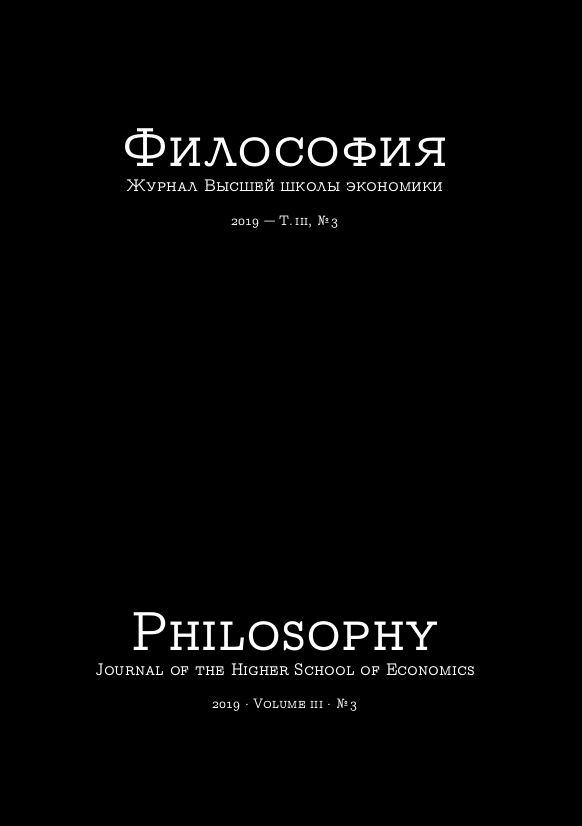Принцип недоверия помыслам
Аннотация
Статья посвящена обоснованию принципа недоверия помыслам (ПНП), согласно которому агент может морально оправданно игнорировать свидетельства в пользу истинности некоторого убеждения, если у него есть достаточные основания считать, что данное убеждение приведет его к морально порочному поступку. Методология работы опирается на ряд идей Л. Витгенштейна, опубликованных посмертно в работе «О Достоверности». В первой части статьи предлагается общее описание соответствующих идей Витгенштейна, которое позволяет сузить область обоснования ПНП до конкретной системы убеждений, а именно системы убеждений православного христианства. Во второй части статьи кратко иллюстрируется многозначность слова «помысел» в русскоязычном переводе Библии, и предлагается интерпретация релевантного для ПНП смысла данного понятия с помощью словаря аналитической философии. В третьей части статьи описывается набор базовых убеждений, которые позволяют обосновать значимость ПНП в системе убеждений православного христианства: убеждение в существовании Бога и ангелов, убеждение в греховной поврежденности когнитивных механизмов, убеждение в наличии страстей, убеждение в существовании злых духов. Каждое из данных убеждений связывается с обосновываемым принципом и раскрывается в его контексте. В четвертой части обосновывается практическая значимость ПНП в описанной системе убеждений, демонстрируется преимущество ПНП над принципом, согласно которому игнорирование свидетельств в пользу истинности некоторого убеждения никогда не может быть оправдано. В пятой части приводится мысленный эксперимент о добрых и злых нейроученых, иллюстрирующий значение ПНП в рамках натуралистического мировоззрения.






